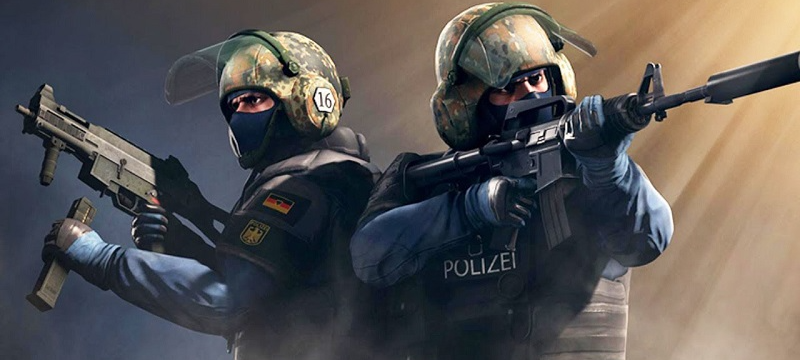In the exciting world of Counter-Strike: Global Offensive (CS:GO), players can unlock valuable virtual items by opening cases. These cases contain a variety of weapon skins, knives, and other cosmetic items that can enhance gameplay and showcase personal style. However, many players need to be aware of the potential profitability of these virtual treasures. This guide will provide a comprehensive overview of how to profit by selling CS:GO cases.

What are CS:GO cases?
CS:GO cases are virtual containers with a selection of in-game items. These cases can be obtained both in the game and at special sites https://skinkings.com. Each case has a unique collection of potential items, ranging from standard to extremely rare and valuable. The excitement of opening cases lies in the possibility of acquiring rare and sought-after items.
How do CS:GO cases work?
When a player opens a CS:GO case, the outcome is determined by a random drop system. The chances of receiving different items are predefined, with rarer items having lower probabilities. This system adds an element of chance and anticipation to the process, making it thrilling for players. The rarity of items within a case directly affects their market value.

Why are CS:GO cases popular?
CS:GO cases have gained immense popularity due to the allure of rare and exclusive items. Players are drawn to the excitement of unboxing cases, hoping to strike gold with valuable drops. The trading and selling aspect of CS:GO cases has created a vibrant marketplace where enthusiasts can buy, sell, and trade items to enhance their gaming experience.
Evaluating Case Profitability
Factors to consider when evaluating case profitability
Determining the profitability of CS:GO cases involves analyzing various factors. Some key considerations include the case’s drop rate, the market value of its contents, and the overall demand for those items. Additionally, researching historical data, such as previous sales and market trends, can provide valuable insights into the potential profitability of a case.
Analyzing case drop rates and market prices
Drop rates play a crucial role in assessing case profitability. Understanding the likelihood of obtaining rare or valuable items from a particular case is essential. Drop rates can vary significantly between cases, with some offering higher chances of obtaining desirable items.
Market prices also play a significant role in evaluating case profitability. The value of items within a case is determined by supply and demand dynamics. Rare and sought-after items tend to command higher prices in the market, while common items may have lower values. Keeping an eye on market prices and fluctuations can help identify cases with potentially higher profit margins.
Identifying desirable case contents
To maximize profitability, it’s important to identify cases with desirable content. This involves researching the market demand for specific items and understanding the preferences of CS:GO, players. For example, certain weapon skins, rare knives, and limited-edition items tend to be highly sought after, driving up their market value. Therefore, focusing on cases containing such desirable items can increase your chances of making a profit.

Strategies for Maximizing Profit
Buy low, sell high: Timing the market
One of the fundamental strategies for making a profit from CS:GO cases is to buy them at a low price and sell them at a higher price. This requires closely monitoring market trends and understanding the supply and demand dynamics. Buying cases during periods of low demand or when prices are depressed can allow you to secure them at a lower cost. You can then sell them when the demand increases or market prices rise, maximizing your profit margin.
Utilizing trade-up contracts
Trade-up contracts provide another avenue for profit generation. You can trade multiple lower-value items for a higher-value item by utilizing trade-up contracts. This strategy allows you to turn a collection of less valuable items into a more desirable and potentially profitable item. Careful analysis of item prices and trade-up contract patterns is necessary to ensure that the resulting item’s market value exceeds the combined weight of the traded items.
Investing in case keys
CSGO case keys are essential for unlocking CS:GO cases. While cases themselves can be obtained through gameplay, keys must be purchased from the in-game store or through various online marketplaces. Investing in case keys can be a lucrative strategy, as their prices are often more stable than the fluctuating prices of cases and items. By purchasing keys at a lower price and reselling them when the demand increases, you can capitalize on the steady demand for keys and potentially profit.
Understanding market trends and patterns
Staying informed about market trends and patterns is crucial for successful case selling. Monitoring the CS:GO community, following reputable trading forums, and utilizing price-tracking websites and apps can provide valuable insights into market dynamics. Understanding the preferences of players, upcoming events or tournaments, and changes in game mechanics can help you anticipate shifts in demand and adjust your selling strategy accordingly.
Selling CS:GO cases can be a profitable venture if approached strategically and with careful consideration. Understanding case profitability factors, employing effective selling strategies, avoiding common pitfalls, utilizing tools and resources, and building a successful case-selling business requires dedication, market awareness, and adaptability. Remember to diversify your case portfolio, monitor market trends, and utilize trade-up contracts and case keys to maximize your profit potential. Be cautious of scams and fraudulent activities, and prioritize excellent customer service to build trust and loyalty among buyers. Engage with the CS:GO community, leverage online marketplaces, price tracking tools, and social media platforms to reach a wider audience. Set realistic goals, develop a marketing strategy, and continuously expand your network and reputation to thrive in the competitive case-selling market.

